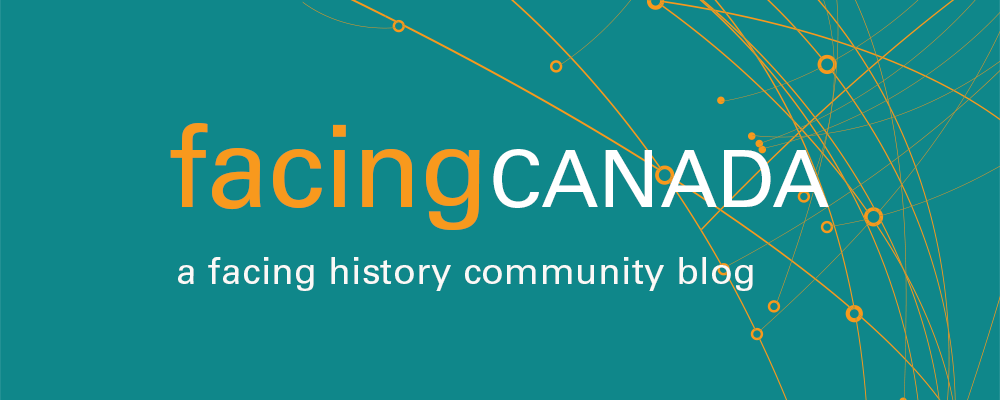An innovative new collaboration taking place in Canada this spring is connecting classrooms and teaching students literacy and performance skills through the study of history and spoken word poetry. “Stand Up, Speak Out,” a four-week program designed by Facing History and Ourselves, is bringing professional spoken word artists into Grade 11 classrooms as part of a unit of study that explores the history of genocide and issues of identity, tolerance, and community.
  Spoken word artist Matthew Jones, stage name Testament, speaking with Facing History students in Canada.Photo Credit: Nick Kozak Spoken word artist Matthew Jones, stage name Testament, speaking with Facing History students in Canada.Photo Credit: Nick Kozak |
“Spoken word developed as a platform for social commentary, social justice issues, and advocacy – giving people a voice to be heard in a forum where words rule,” said Jasmine Wong, Facing History program associate in Toronto, who helped develop the resources and teaching strategies for the unit. “Like any art, spoken word has the power to move us, to stretch our ideas, and to create change.”
As part of the project, the students from the different schools involved used digital media to connect with each other, share their work, and explore content and primary source materials that inspire them. “I have always wanted to make a difference in the world, but I never knew how,” Toronto student Aisha P. posted on the project Facebook group. “Now, since I’ve learned a little bit more about the world, I feel like I can go out and maybe help make a difference, however small it may be.”
For the final assignment, each student will create a spoken word piece and will perform it in front of their peers, educators, and the visiting artist.
To celebrate the project’s culmination, representatives from each school will perform alongside the professional artists at a free event, open to the public. Also called “Stand Up, Speak Out,” the event takes place April 24 at the Royal Ontario Museum’s Signy and Cléophée Eaton Theatre at 7:30 p.m.
Check out our blog EVENTS page for details

